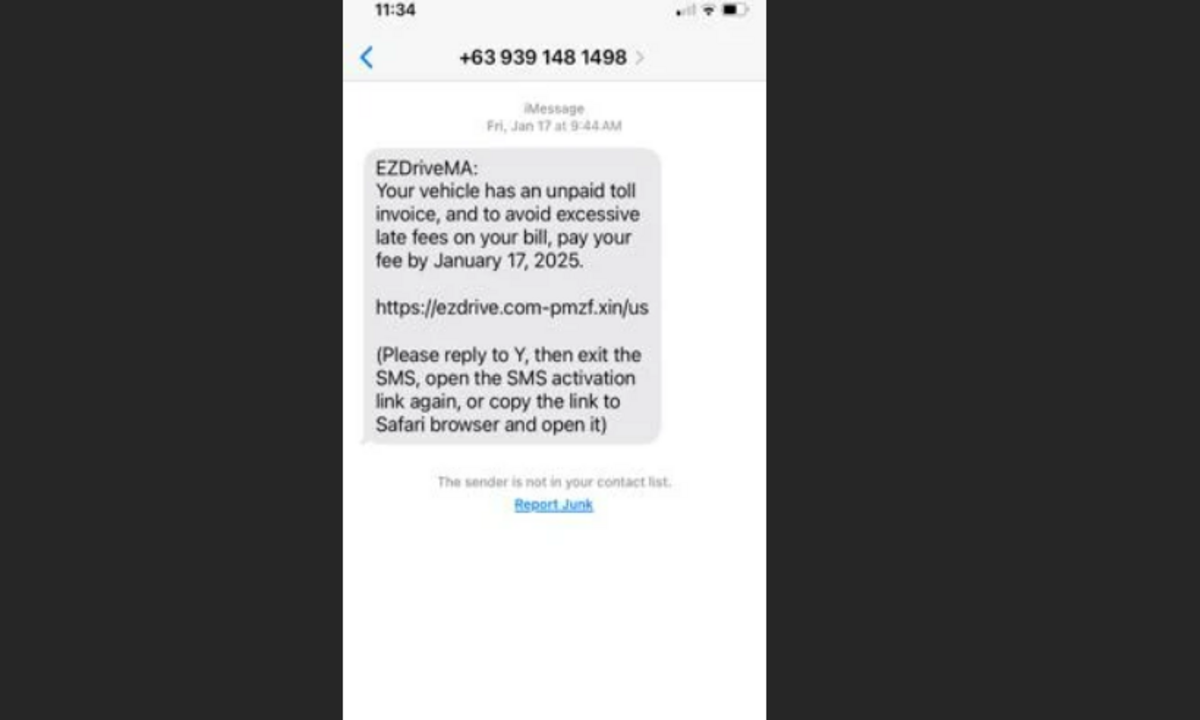Residents across Colorado are being bombarded with fraudulent text messages claiming they have unpaid traffic violations or tolls. These scams are designed to trick people into revealing personal and financial information by urging them to click on malicious links or make immediate payments.
Authorities are warning residents to stay cautious and avoid engaging with these messages.
How the Scam Works
The fraudulent messages often appear to be from official agencies such as the Colorado Department of Transportation (CDOT) or local city authorities. They claim that the recipient has an unpaid parking ticket, toll fee, or traffic fine and must pay immediately to avoid penalties. These texts typically include a link leading to a fake website that mimics government portals, designed to steal credit card details and other sensitive information.
Many residents have reported receiving such messages, including CDOT’s deputy director of communications, Tim Hoover, who confirmed he has personally received these scam texts twice. He reiterated that CDOT does not collect tolls or fines through text messages and urged recipients to delete such messages immediately.
Official Warnings and Responses
CDOT and local governments have been actively warning residents about these scams. The agency posted a scam alert on its official Facebook page, reminding drivers that any official notifications regarding unpaid tolls or traffic violations are sent through the mail or official online accounts, never via text.
Similarly, the City and County of Denver have issued public statements clarifying that they do not use text messages to notify individuals about unpaid parking tickets. Instead, official notifications are sent via direct mail, ensuring security and authenticity.
Officials encourage residents not to click on links in these fraudulent messages and to delete them immediately. They also recommend reporting the scam to the Federal Trade Commission (FTC) or local law enforcement to help track and stop such cybercriminal activities.
Scams Spreading Beyond Colorado
While this scam has been rampant in Colorado, reports indicate that similar fraudulent schemes are targeting residents in other states, including Texas, Florida, California, Connecticut, Massachusetts, Minnesota, and Washington. Cybersecurity experts believe that organized smishing (SMS phishing) groups are behind these widespread attacks, using automated systems to send thousands of fake messages at a time.
Recent research suggests that scammers are harvesting large batches of phone numbers from public databases and then sending bulk messages, assuming that most recipients are drivers. Their ultimate goal is to steal payment details, identity information, or even gain unauthorized access to financial accounts.
How to Protect Yourself from Traffic Ticket Scams
Authorities are urging residents to stay vigilant and take the following precautions:
Be Skeptical of Unsolicited Messages: Always be cautious when receiving unexpected texts, especially those demanding urgent action or payment.
Verify the Source: If you receive a message about an unpaid fine, contact the agency directly through their official website or phone number instead of clicking on any links in the text.
Do Not Click on Suspicious Links: Scammers use fake websites that closely resemble real government portals. Always navigate to the official website manually instead.
Report Scams: If you receive a suspicious message, report it to your local law enforcement or the Federal Trade Commission (FTC) to help authorities track and shut down scammers.
Educate Others: Warn family members, especially elderly relatives who may be more vulnerable to such scams.
The Growing Threat of Smishing Scams
As digital scams become more sophisticated, criminals are increasingly using SMS and email phishing techniques to deceive individuals. Experts warn that scams like these will continue to evolve, making it crucial for the public to stay informed and cautious.
Authorities expect the traffic fine scam to resurface periodically, as it has already happened multiple times in the past. According to Tim Hoover of CDOT, “Every six to nine months, a new variation of this scam appears. Unfortunately, there’s not much we can do except warn the public each time.”
Conclusion
Residents should stay alert to these ongoing scams and take necessary precautions to avoid falling victim. Always remember that official agencies do not send traffic violation or toll payment requests via text message. By staying cautious, verifying sources, and reporting fraudulent messages, people can help protect themselves and others from these growing digital threats.
Disclaimer—Our team has checked this article to ensure its accuracy and eliminate any misinformation. We are committed to providing clear and reliable information for our readers.


